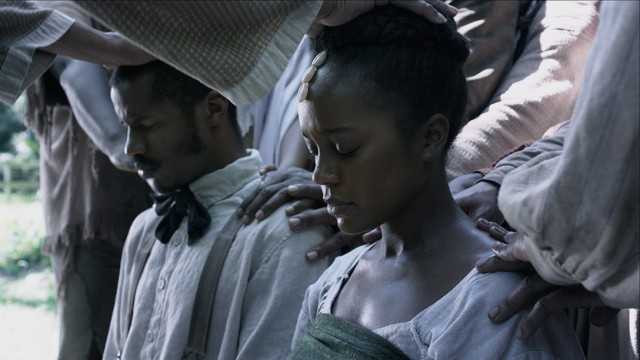TW: Rape, assault
Talking about rape culture isn’t easy, but we’ve reached a point in 2016 where it needs to be discussed. In the shadow of the revelations about Bill Cosby’s history with sexual assaults, America is fully engaged in a conversation about rape and rape culture. From the presidential elections to lowly cult film critics, from modern arthouse movies to 40+ year old foreign films, sexual assault and rape have permeated most aspects of our culture.
It’s almost gauche to list everything that happened, but good god has it been a year. Bill Clinton’s victim came forward again at the beginning of the year, and Donald Trump’s creepy-as-fuck “Grab ‘Em By The Pussy” video was leaked in October. Woody Allen had a new movie that opened the Seattle International Film Festival with much local controversy and derision. As with every Woody Allen movie, his accusations came back up.
In high profile auteur films, Nicolas Winding Refn’s The Neon Demon had an underage actress swallowing a knife and being assaulted by a lesbian. Tom Ford’s Nocturnal Animals focuses on a woman reading a book written by her husband, where he has characters raping and murdering his wife and daughter (the book within the movie is a fridging). Paul Verhoeven’s Elle opens with a graphic rape scene that deals with the emotional aftermath. That’s just off the top of my head. Even Don’t Breathe used the threat of sexual assault or rape with a turkey baster as a major turning point for the movie.
In August, Nate Parker’s history of sexual assault came back to haunt him in time to coincide with the release of his debut film The Birth of A Nation. In college, Parker and co-writer Jean McGianni Celestin were charged with sexually assaulting Parker’s former girlfriend. Celestin was found guilty, but Parker’s case was dismissed. The victim later committed suicide. To top it off, Parker writes in multiple sexual assaults into the narrative of The Birth of A Nation only to cast himself as the avenger to these women, one of whom has no actual dialogue in the movie. Seriously, this was more fridging.
In October, in the wake of Donald Trump’s video, a female acquaintance accused film critic Devin Faraci of public sexual assault and humiliation. The accusations had enough truth to warrant Tim League to fire Faraci from his position as Editor-In-Chief of Birth. Movies. Death., the film website Faraci helped found. Since the firing, Faraci disappeared from public sight.
Last week, somebody dug up a 3-year-old interview with Bernardo Bertolucci where he boldly stated that a scene with sexual violence in Last Tango in Paris was actually non-consensual. The scene wasn’t in the original screenplay and conceived the morning they filmed it. They sprung it on 19-year-old actress Maria Schneider, who later regretted allowing the scene to occur, saying she “felt a little raped, both by Marlon and Bertolucci.”
In the face of this barrage, its easy to despair. But, there is some light at the end of this tunnel. Maureen Ryan wrote an article on television showrunners who are trying to put the brakes on the use of rape and sexual assault for ratings and shock value. Executive Producer Jeremy Slater said he has a rule on The Exorcist when looking at spec scripts that dismissed any that used rape for shock value, and had to dismiss 15-20% of the screenplays because they features a graphic scene of sexual violence.
Even in the stories, there are hints that things may be righting themselves. Finally, after 40+ years, Last Tango in Paris is being re-evaluated (the scene in question was regarded as a landmark scene in erotic savagery). Devin Faraci was fired, and disappeared from the public eye after a half-hearted Twitter apology. There was some pushback against the rape culture represented by placing Woody Allen in a lead slot of a film festival, though not enough for people to abandon the opening screening.
One side of this article needs to ask the question “what changes do we want in the industry?” I mean, outside of the obvious “please don’t rape or sexually assault people in real life” which should be a given. I’d like to see a lower frequency of sexual assault, but if it has to be included then we should have more thoughtful depictions of sexual assault rather than it just being included as a staple of “adult” cinema. It’s still used as a go to for showing how evil a bad guy is (even on a side character), which is getting tired as a trope.
But, then, “what can people do as consumers?” I mean, boycotting Bertolucci is easy enough considering his only movie in 13 years, 2013’s Me and You, barely got a stateside release. But, Game of Thrones is seeing record ratings even after 2015’s wedding-night rape of Sansa. Is there anything else to be done as a consumer to a nebulous problem that permeates seemingly every aspect of the industry?
Please use the comment section below to air your feelings, and offer suggestions. The above article is like the fifth ground up rewrite, and any criticisms are welcome. I just needed to give space for this topic, because this is a major issue.

